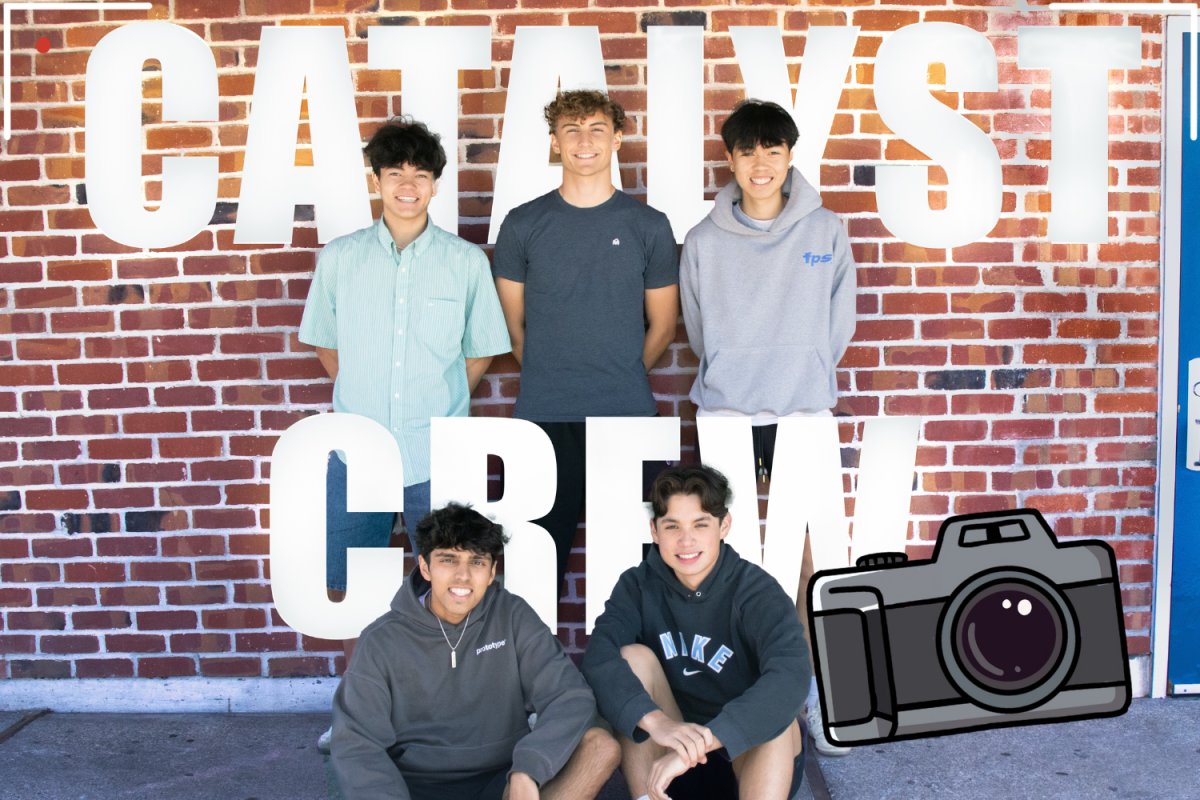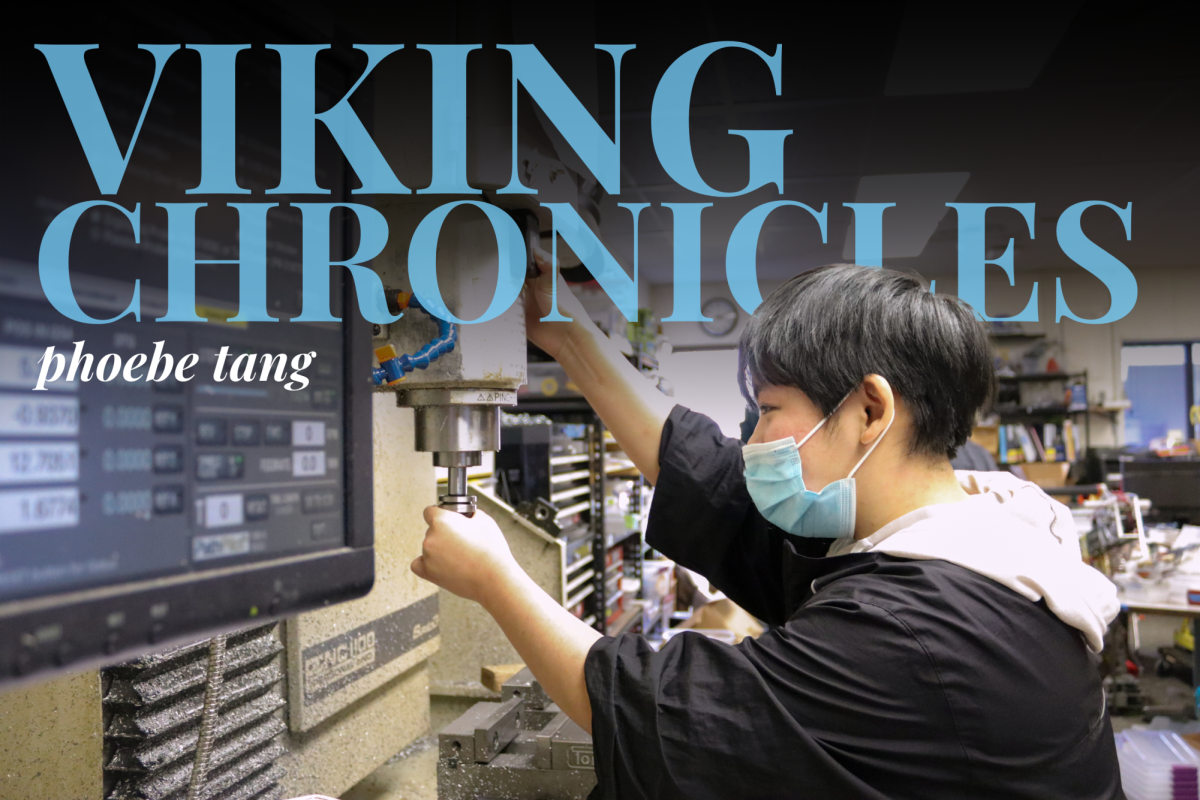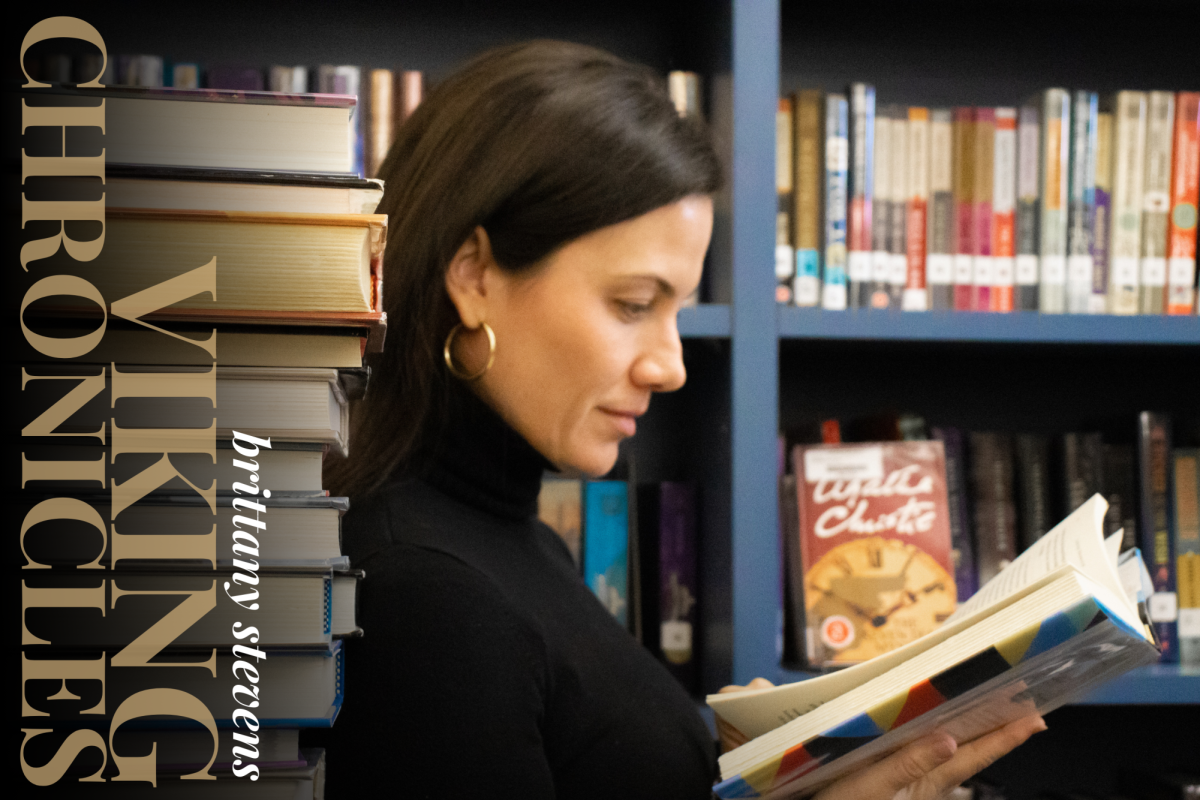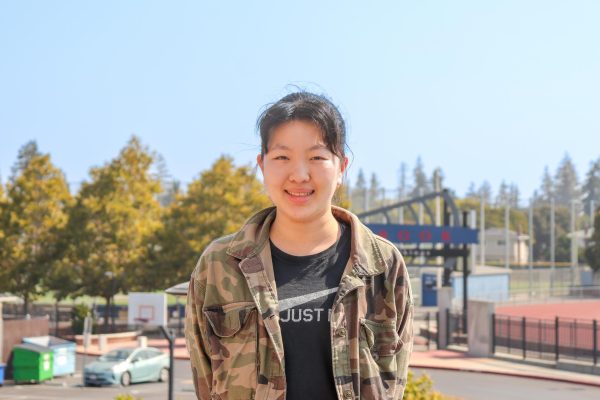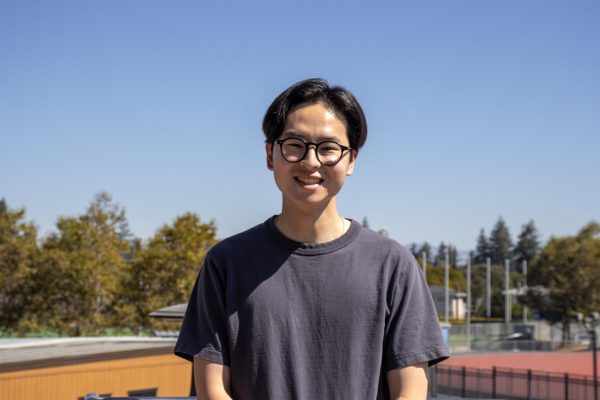Elizabeth Louie
French teacher Elizabeth Louie began her career working in a visual perception laboratory at UC Davis as a junior researcher, where she managed the lab and ran her own experiments under her principal investigator. Her job consisted of programming with C++, running experiments on the MRI at the UC Davis Medical Center, analyzing the data and editing brain imaging.
Louie received a Bachelor of Arts degree in psychology, with a minor in French. She was first inspired to pursue cognitive neuroscience after enjoying a class taught by her principal investigator on visual perception.
“It was just a really interesting class,” Louie said. “It was focused on what we see every day, but delved deeper into how our brain processes that information and the nuances of visual processing.”
Despite her deep interest in psychology and neuroscience, Louie transitioned to teaching French because she missed the interpersonal interactions and speaking the language itself. Furthermore, she loves seeing the tangible impact she can make from teaching high schoolers.
“It’s super gratifying for me to work directly with teenagers and witness their growth,” Louie said. “In cognitive neuroscience and the research world, you often don’t see immediate impact, which can be demoralizing if you’re not passionate about data and statistics.”
Before teaching at Lynbrook, Louie moved to France to work as a teaching assistant for eight months. Though she struggled with adapting to a new country and job, she appreciated the opportunity to connect with people.
“I discovered that knowing another language allowed me to connect with so many others,” Louie said. “Knowing that my students in level four and AP French can also forge those connections is incredibly powerful and inspiring to me.”
Upon returning from France, Louie obtained her teaching credential from San Francisco State University and currently has been teaching at Lynbrook for over 10 years. She appreciates students’ openness to embracing a different perspective through language.
“It’s the most heartwarming thing to see my students graduate and realize all that they’re capable of,” Louie said. “I love seeing the connections my students make and sending them out into the world.”
David Taylor
Prior to becoming a physics teacher, David Taylor was a product engineer at National Semiconductor. As a product engineer, his team was tasked with testing and improving the yield of semiconductors. Their approach was straightforward: identify the root cause of failures, address them and communicate findings to other groups to fix the problem together. Despite the routine nature of the work, Taylor found enjoyment engaging with friends at a college club.
“All the new hires would meet and do activities together at the college club, which helped us build personal relationships within the company,” Taylor said. “That’s how I met my wife.”
Before joining National Semiconductor, Taylor had previously attended the Naval Academy and the Rochester Institute of Technology. At RIT, he began his studies in photographic science but soon found himself captivated by semiconductor technology. This newfound interest led him to switch his major to microelectronic engineering, a decision that eventually helped him land a job at National Semiconductor.
After the company was acquired by Texas Instruments, Taylor struggled to keep up with the fast-paced changes from upper management.
“The looming threat of getting laid off was always over your head in high tech,” Taylor said. “It was a very nervous and stressful situation.”
Taylor’s shift from engineering to teaching proved to be a tumultuous journey. After a year of returning to school to obtain his teaching credential, he grappled with two years of uncertainty about the stability of his newfound career. The stress stemming from job insecurity along with low pay made the transition to teaching difficult. Despite these hardships, Taylor thoroughly enjoys his job, now entering his 21st year as a teacher.
“I love the young clientele, as it keeps me young,” Taylor said. “I also like not having to worry about things changing too much. Certainly change still occurs, but not at all like how I felt working in tech.”
Terri Fill
Though her passion for English has always been a part of her, English teacher Terri Fill previously worked in the Industrial and Organizational Psychology field, which uses research methods to improve work performance, communication and employee satisfaction. Before entering the realm of teaching, with degrees in English and Psychology as well as a minor in women’s studies, Fill originally considered pursuing law school and other careers that would utilize her English degree.
“I became interested in Industrial and Organizational Psychology, which was relatively new at the time,” Fill said. “I thought it sounded really new and exciting.”
After completing her master’s degree in I/O Psychology, Fill started her career at Arthur Andersen LLP in Chicago, Illinois. Working for the company’s Professional Education Division, Fill’s role included working with department managers and directors to identify the needs of their employees, creating assessments that test the employees on what they know and surveying them on what they think they need to know.
“It’s like a little research study,” Fill said. “I would analyze the data and come up with suggestions for instructional designers on what training employees needed. After that training, we would evaluate the effectiveness of the training.”
Fill found her job fulfilling because she was helping people resolve and avoid problems. This was the case for one of the projects she worked on, where she traveled to several steel mills in the Midwest to conduct focus groups with employees, gathering information on their areas of discontent so that appropriate solutions could be designed and implemented.
Years later, when her children were young, Fill read books to her children and encouraged them to follow their hearts and pursue their own dreams. It was through these experiences that she was reminded of her true love for English, and eventually, she decided to embark on a journey to obtain her teaching credential.
“I’d always remind my kids that as long as they were being active learners, eager to try new things, they would eventually find something that they would feel passionate about, but I realized that I was not listening to myself,” Fill said. “I did believe that I/O psychology was a new exciting field, but I didn’t have a solid reason for why I chose that over English.”
Entering into teaching, Fill never expected her new career to be easier. In fact, she feels that it is harder than her previous career in some ways.
“In industry, I had a lot of people I could go to for help,” Fill said. “Although many training programs, mentors and colleagues are available for teachers, this job requires a lot of self-sufficiency.”
Nevertheless, Fill finds that the skills she derived from her previous career complement her teaching career. Looking back, Fill has no regrets about her career change. By exposing herself to two different fields, she feels that she’s been able to mature and grow into the person that she is today.
“In life, we try hard to steer our boats into a certain direction, but it’s hard to tell from our vantage point in which direction the current is pushing us,” Fill said. “While I tried steering that boat into what I thought I wanted, I’ve also allowed life to show what it has in store for me, and both have worked out to be very satisfying.”
Crystal Isola
Before taking on a formal role in education, music department lead and choir teacher Crystal Isola took on numerous roles in the entertainment business.
Starting at a young age, Isola enjoyed performing and teaching vocal music. Because Alberta, Canada, where Isola spent most of her childhood, was a somewhat remote area with limited music educators, schools there would instead utilize educational music programs provided by Alberta Education through television and radio. Among those who helped make these programs was Isola’s mother, an opera singer and music educator who owned a large vocal studio with a handful of students, and Isola would lead the choir consisting of her mother’s students.
“When I was really young, I was part of this choir program and my mother would use the group for demonstrations on the programs,” Isola said.
Isola’s work was noticed by numerous directors who hired her for other educational programs. One of the projects she worked on was a career day-styled program where she would interview different people all over Edmonton about their careers.
“This project was very cool because it was like being a journalist,” Isola said. “I wrote my own questions and interviewed different people from all walks of life.”
After earning a degree in Music Education and a Master of Fine Arts in acting, Isola decided to try to enter the entertainment industry and headed to New York. Though she was not able to receive any work as a performer, Isola was able to obtain a job as personal secretary to Julia Migenes, a famed opera singer.
“Through the secretary role, I learned that I didn’t want a life working in the entertainment industry but rather wanted one with a family,” Isola said. “When you’re a performer in demand, it’s difficult to take care of your children.”
Deep inside, Isola had a longstanding passion for education. Furthermore, one of her graduate school professors suggested that she should become a teacher after seeing her working with the undergraduates during a rehearsal. These factors contributed to her decision to move to California and enter into teaching. Isola first started teaching at The Harker School for their K-8 music division and eventually moved to Lynbrook, where she has been working for 34 years.
“Even though I did not end up as a Broadway actress, my experience in theater, television and radio, and my other stints in entertainment allowed me to become a great teacher,” Isola said. “Your skills and passion do not always have to lead you in one direction, but rather many different paths.”
Shveta Bagade
For those seeking questions about the college application process, they may have met Shveta Bagade, one of the college and career advisors. Bagade held a variety of careers before settling at Lynbrook.
After obtaining a degree in materials engineering, Bagade initially worked in research and development, went on to pursue a career in tech service and continued in sales and marketing. Following her marketing job, Bagade moved to California and became a full-time mom for 20 years. During that time, she volunteered at different high school college and career centers, such as at Prospect High School.
“I really enjoy working with teenagers,” Bagade said. “I find it fulfilling to be able to help students find their place and kick off their career.”
During her work at Prospect, another fellow volunteer suggested that she run her own college advising business. Listening to her colleague’s advice and conducting her own research, Bagade completed college counseling training in 2016 and started her own business, expanding solely through referrals. It was during the training that she met Kathy Tang, who now works together with Bagade as Lynbrook’s college and career advisors. When Barb Takahashi, a former college and career advisor, made the decision to retire, Tang asked Bagade if she was interested in succeeding Takahashi’s position, after which Bagade eventually started working in the College and Career Center.
“I did love the independence of a business, but to have a nice, structured environment was also appealing,” Bagade said. “My current position offers that routine for me to follow.”
Though Bagade continues to run her business, she shrank it significantly and does not take on clients from Lynbrook due to conflict of interest. From being an engineer all the way to being a college and career advisor, Bagade learned that everybody’s path changes based on the experiences they have throughout the course of their lives.
“Don’t always think about what you want to do in 20 years, but instead think three to five years,” Bagade said. “Because what happens short-term can quickly morph into long-term.”




























































